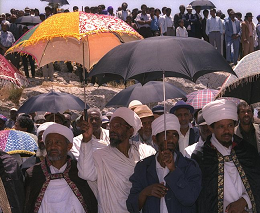New Courses (Spring 2016)
There are two new courses available in the Spring 2016 semester. Information about both courses is provided below.

Ethiopian Jews In Ethiopia And Israel: The Contested Nature Of Ethnic Differences And National Belonging
(HEJS 3298-001/SOC 3298-001)
In 1867, Joseph Halévy, the French Jewish scholar, meets for the first time members of the Beta Israel community in northern Ethiopia, upon been identified sole as European, he replies: “Oh, my brothers, I am not just a European, but an Israelite, like you.” Halévy’s interlocutors turned to look at one another, wondering how to make sense of such a claim?
In this course we will follow such moments in the history of Ethiopian Jews (Beta Israel)—and the border social context and relations they embedded in—from the 19th century, through the great migration to Israel, and present day second generation in contemporary Israel. Looking at the social trajectory of Ethiopia Jews, we will examine more broadly the contingent and contested nature of categorical membership along racial, ethnic and religious lines, and across different cultural, temporal and national contexts.
Topics To Be Covered:
- Ethiopian Jewishness and Religious Boundaries in Ethiopia
- Sociological literature on the Making of Ethnic And Racial Categorization
- Immigration and Contemporary Social Problems in Israel
This course has two main objectives that complement each other: First, to acquire familiarity with the social history of Ethiopian Jews’ symbolic inclusion within the boundaries of contemporary Judaism and Israeli nationhood. Second, by using the modern history of Ethiopian Jews as a case study—and in comparison to other cases from the United States, Latin America, and more—acquire familiarity with the sociological literature that explores the variations in the workings of classification schemes, the ways our social world is organized and experienced.
 Holocaust in Theater and Film
Holocaust in Theater and Film
(HEJS 3298-002/ENGL 3623-001/DRAM 3138-002)
How do your represent the unimaginable? As daunting of a task as this is, the Holocaust is one of the most dramatized and written about events in history for the amount of time since its passing. In this course we will be examining the means by which authors and directors have attempted to represent the Holocaust. We will discuss what tools were used including choices made in written structure, visual imagery, and the use of language in an attempt to capture the essence of the Holocaust and explore its deeper meaning and societal repercussions.
As well as examining both dramatic works and films that depict the Holocaust we will read first-hand accounts and watch documentaries in order to broaden our knowledge of the Holocaust so that we can better reflect upon the statements being made in the representations. We will also be reading a large body of criticism relating both the dramatization of the Holocaust and the Holocaust itself. Some of the works being studied in the class include; Akropolis by Jerzy Grotowski, Endgame by Samuel Beckett, The Deputy by Rolf Hochhuth, Who Will Carry the World by Charlotte Delbo and Ghetto by Joshua Sobel as well as many others. We will also be examining films including Ida directed by Pawel Pawlikowski, The Pianist directed by Roman Polansky, and Amen directed by Costa-Gavras.
The coursework will include keeping a journal of your reflections on the material covered in the course, turning in one mid-term paper, and preparing a final presentation for the class.
This will be a discussion based class, and as such, class participation is also considered to be a part of the coursework.

